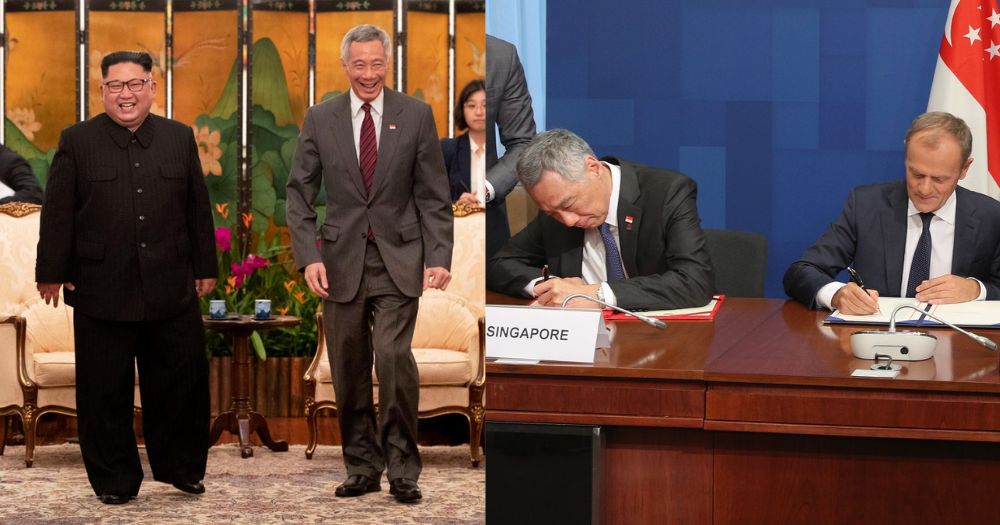Prime Minister Lee Hsien Loong will be handing over his role as head of government to Deputy Prime Minister Lawrence Wong on May 15, 2024.
PM Lee assumed office on Aug. 12, 2004, and served as prime minister for almost 20 years.
Throughout his time as prime minister, he was committed to advancing Singapore’s foreign policies and heightening bilateral relations with foreign counterparts through trade agreements, security and bilateral events.
Singapore-U.S. relations
2005: Strategic Framework Agreement (SFA)
Singapore and the United States (U.S.) have shared enduring diplomatic relations forged through defence and security agreements, especially in the early years of PM Lee's tenure.
In July 2005, PM Lee signed the Strategic Framework Agreement (SFA) with then-President George W. Bush in the interest of U.S.-Singapore defence ties.
The SFA is a framework jointly introduced by the two countries to address threats such as terrorism, making Singapore a key security partner of the U.S.
In relation to security cooperation, the 1990 Memorandum of Understanding (MOU) between the U.S. and Singapore was renewed by both parties in 2019 after PM Lee signed the Protocol of Amendment with then-President Donald Trump to extend the MOU for 15 years.
The agreement provided U.S. forces with access to Singapore's air and naval bases as well as logistic support for transiting personnel, aircraft and vessels.
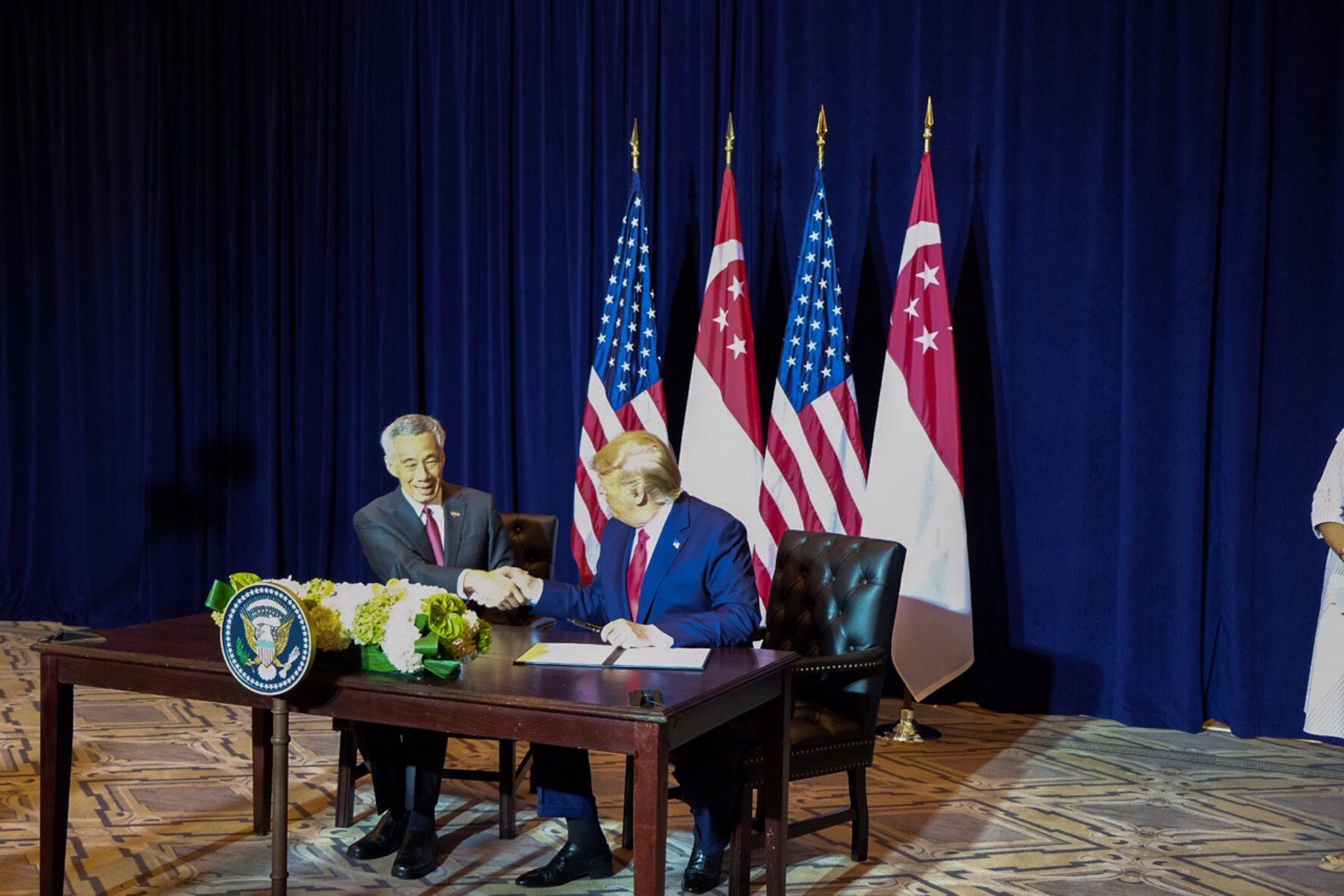 Photo by MINDEF.
Photo by MINDEF.
Singapore-Thailand relations
2008: Resumption of CSEP and STEER
Under PM Lee's leadership, Singapore saw the resumption of the Singapore-Thailand Civil Service Exchange Programme (CSEP) and the Singapore-Thailand Enhanced Economic Relationship (STEER) meetings in 2008.
The CSEP was introduced in 1998 to promote networking and the exchanges of experiences and best practices between the 13 clusters of cooperation in Singapore and Thailand such as foreign affairs, civil service and more.
The STEER serves as an economic cooperation mechanism where economic agencies and private sectors in both countries can meet to discuss and exchange ideas.
Such meetings proved beneficial to the bilateral relations between both parties, as Singapore was Thailand's fifth largest trading partner while Thailand was Singapore's ninth largest trading partner in 2008.
In a 2015 letter to then-Prime Minister Prayut Chan-o-cha, commemorating 50 years of diplomatic relations between Thailand and Singapore, PM Lee said: "Bilateral trade has grown steadily over the years, and Singapore continues to be one of Thailand’s largest investors.
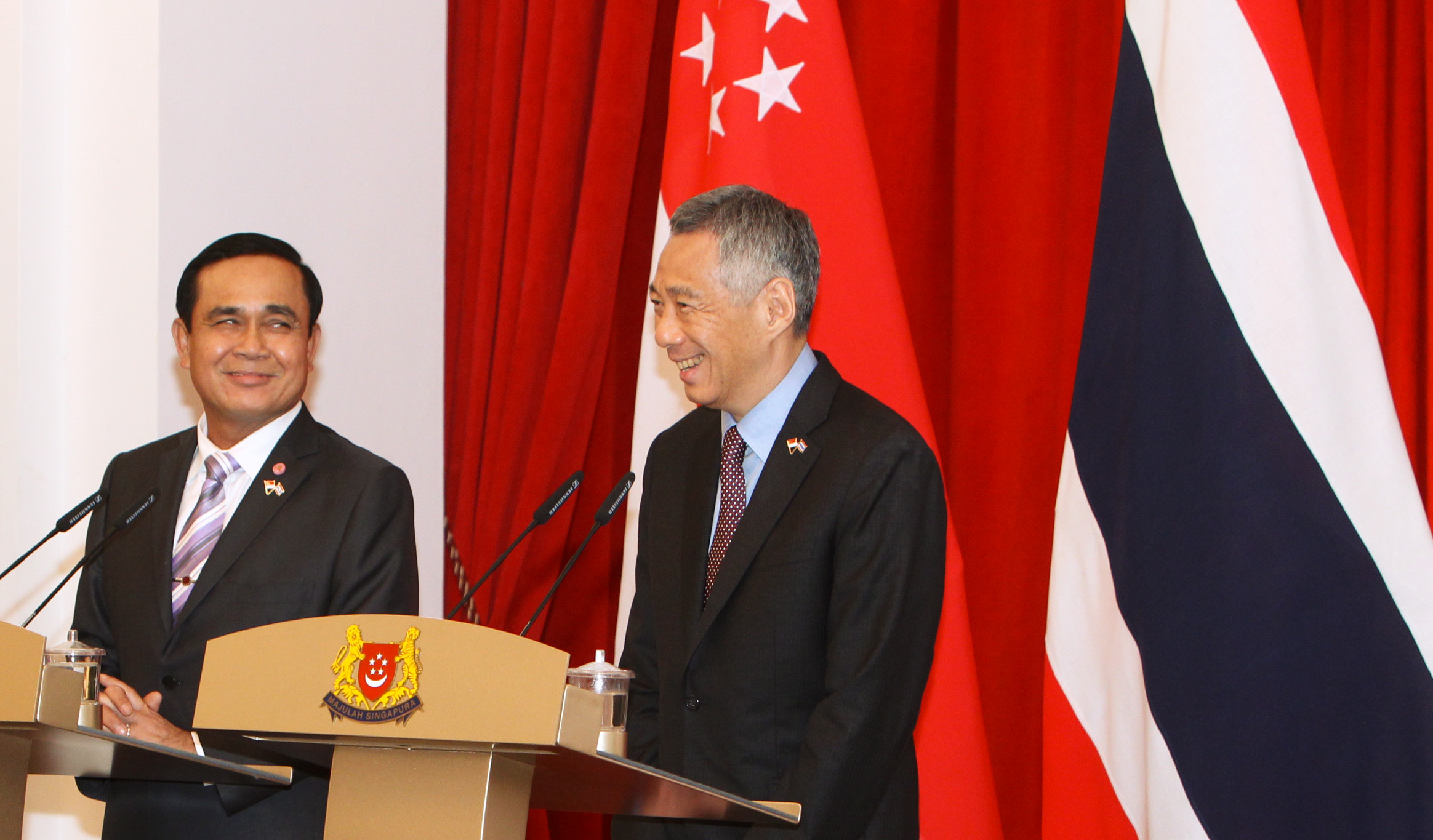 Photo by Prime Minister's Office Singapore.
Photo by Prime Minister's Office Singapore.
Singapore-China relations
2015: First summit between China and Taiwan leaders since 1949
On Nov. 7, 2015, the President of the People's Republic of China, Xi Jinping, formally met with former Taiwan President Ma Ying Jeou for the first time since Chinese and Taiwanese leaders met at the end of China's civil war in 1949.
The summit was hosted at the Shangri-La Hotel in Singapore, where the two leaders discussed promoting peace and cooperation between Mainland China and Taiwan.
During his visit, Xi also met with PM Lee and leaders from both countries officially launched discussions involving the Singapore-China bilateral free trade agreement.
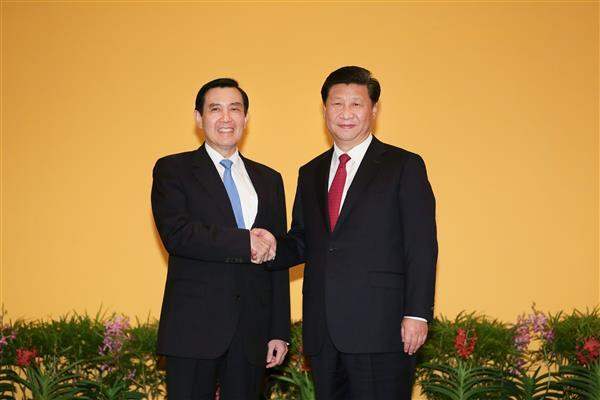 Photo by Office of the President Republic of China (Taiwan).
Photo by Office of the President Republic of China (Taiwan).
2016: SAF Terrex incident
In November 2016, the Hong Kong Customs and Excise Department detained nine Singapore Armed Forces (SAF) Terrex Infantry Carrier Vehicles (ICVs) during a supposed “routine inspection”.
In parliament on Jan. 9, 2017, Minister for Defence Ng Eng Hen said that PM Lee wrote to then-Hong Kong Special Administrative Region Chief Executive Leung Chun Ying for the immediate return of the ICVs to Singapore.
On Singapore's relationship with Hong Kong as a result of the incident, Ng said: "Singapore and Hong Kong have long enjoyed good and friendly relations. We hope the matter will be resolved satisfactorily and our friendly relations will endure."
The vehicles were returned to Singapore in January 2017.
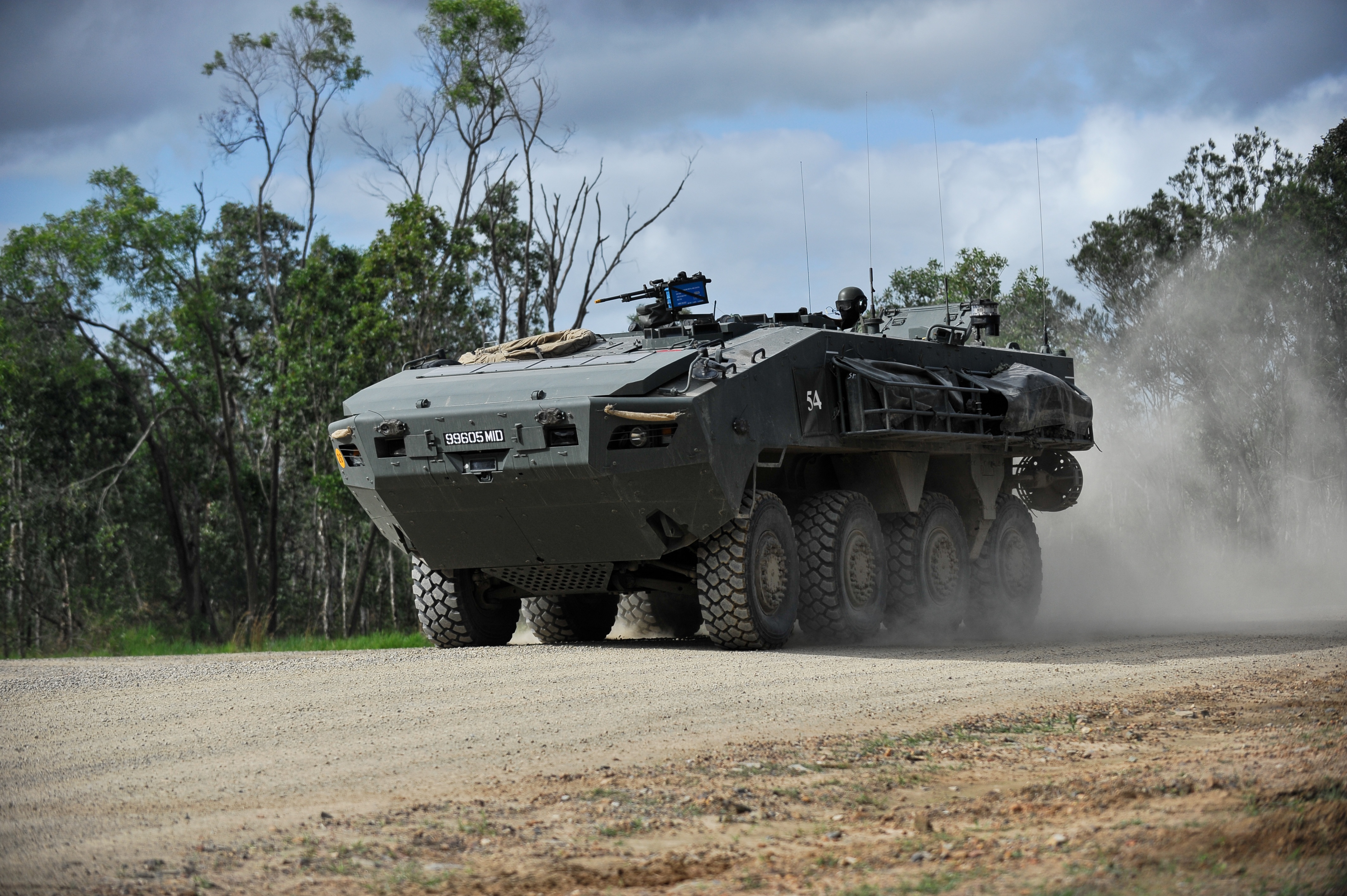 Photo by MINDEF.
Photo by MINDEF.
Singapore-US-North Korea relations
2018: Trump-Kim Summit
On Jun. 12, 2018, Singapore hosted the first summit between the two leaders of the United States and the Democratic People's Republic of Korea (DPRK), held at the Capella hotel in Sentosa.
Then-President Donald Trump had met with North Korean supreme leader Kim Jong Un for the first time to ease military tensions and discuss denuclearisation, and their one-to-one meeting lasted 40 minutes, which ended with a signing of a joint declaration.
PM Lee had separate meetings with Kim on Jun. 10, 2018 and Trump on Jun. 11, 2018, where both leaders had thanked PM Lee for Singapore’s hosting of the summit.
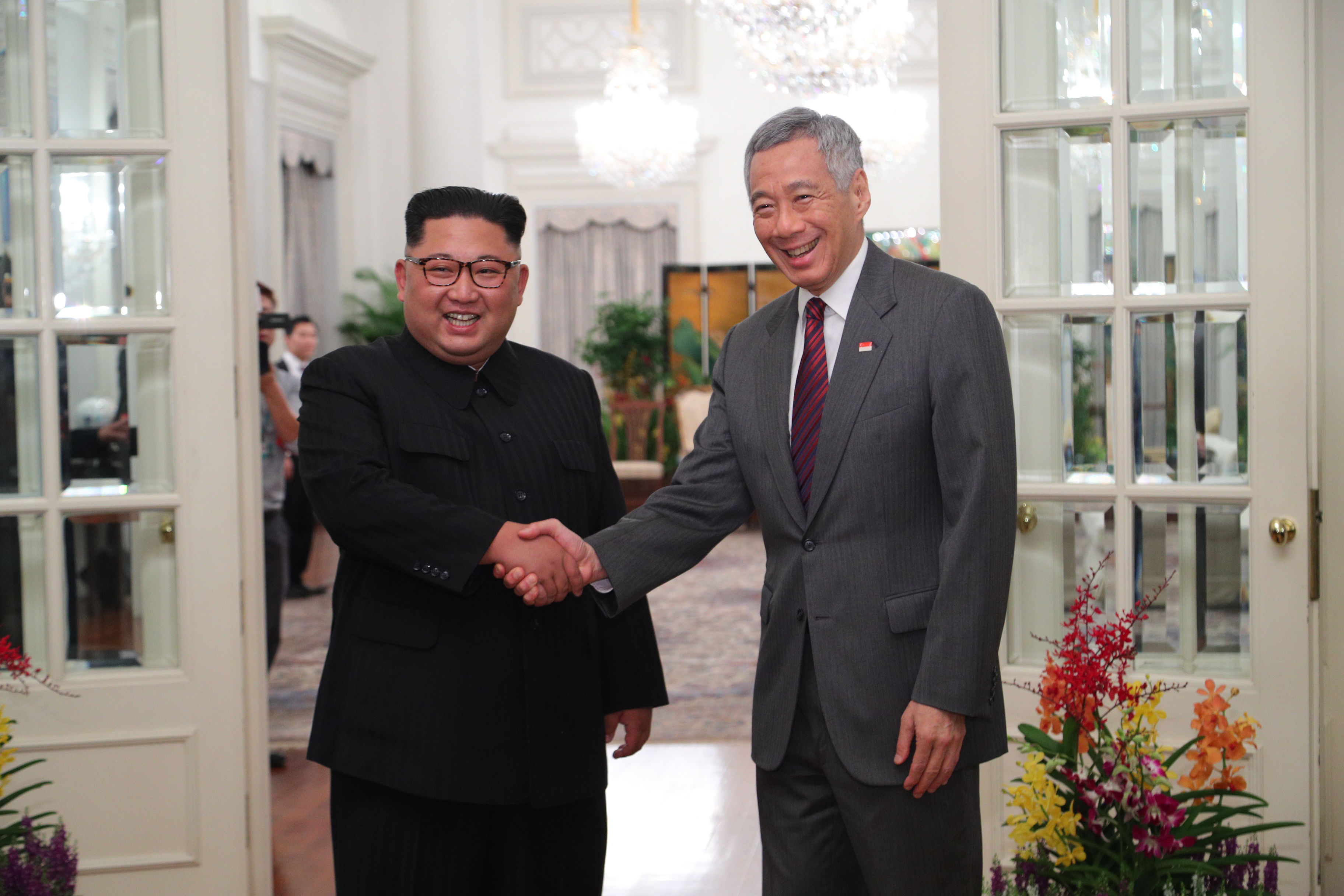 Photo by Prime Minister's Office Singapore.
Photo by Prime Minister's Office Singapore.
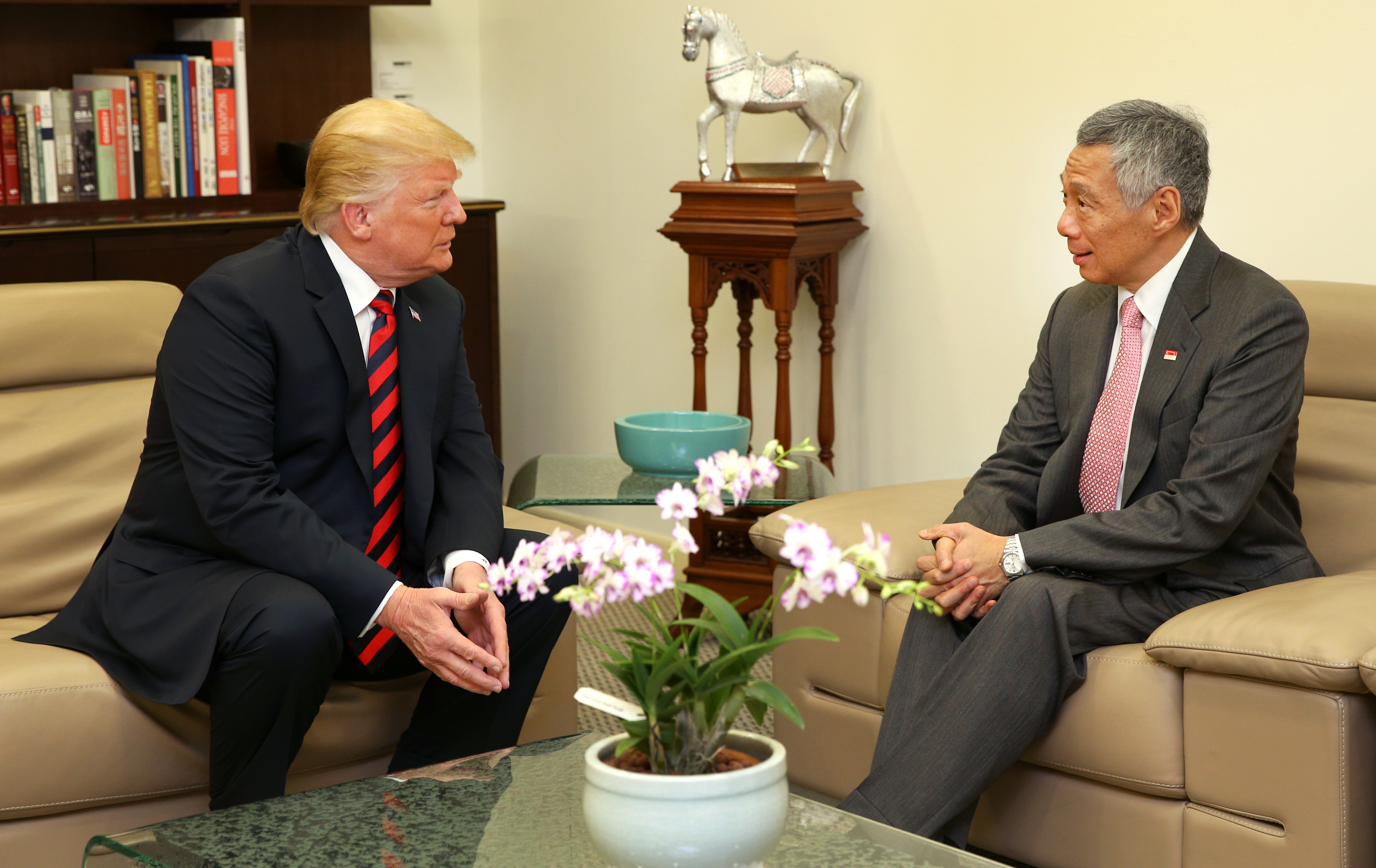 Photo by Prime Minister's Office Singapore.
Photo by Prime Minister's Office Singapore.
During his National Day Rally 2018 speech on Aug. 19, 2018, PM Lee said that Singapore was chosen by the two countries as a host for its "friendliness" with all parties, its "serious and reliable" partnership and that Singapore has the infrastructure and capability to provide a "safe and secure environment".
In a 2018 parliamentary response, Minister for Foreign Affairs Vivian Balakrishnan wrote that "Singaporeans can take pride in this expression of trust and confidence in us" after the country was specifically chosen by the two leaders to host the summit.
Singapore-Europe relations
2019: EUSFTA
PM Lee also enhanced Singapore foreign relations through bilateral agreements such as the EU-Singapore Free Trade Agreement (EUSFTA) between Singapore and the European Union (EU) which came into force on Nov. 21, 2019.
A first of its kind agreement between the European Union (EU) and an Asean country, the EUSFTA aims to ease trade between the EU and Singapore.
On Oct. 19, 2018, PM Lee signed the EUSFTA along with former leaders of the European Council, the European Commission, and then-Austrian Chancellor.
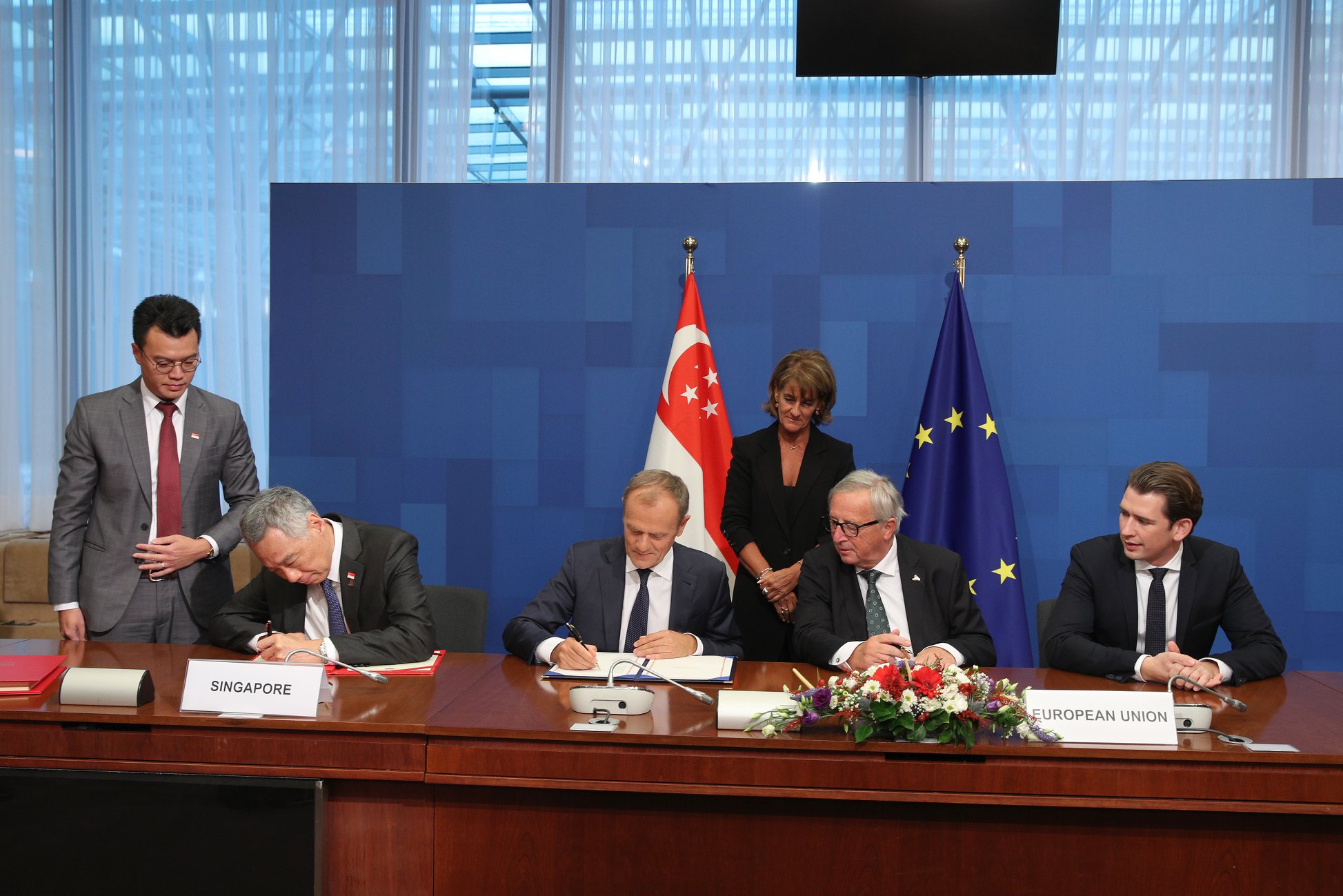 Photo by Lee Hsien Loong.
Photo by Lee Hsien Loong.
The agreement also led to the introduction of new border enforcement measures relating to Intellectual Property (IP) rights in Singapore in 2018.
In a parliamentary reading for the IP (Border Enforcement) Bill in July 2018, Edwin Tong, Senior Minister of State for Law at the time, called for amendments to curb copyright or trade mark infringement for imported or exported goods.
Singapore-Malaysia relations
Pedra Branca dispute
The Pedra Branca territorial dispute, which started in 1979 after Malaysia claimed sovereignty over the island, was conclusively settled by the International Court of Justice (ICJ) when it awarded Pedra Branca to Singapore in 2008.
The small island is located about 24 nautical miles east of Singapore and 7.7 nautical miles east of south Johor, Malaysia.
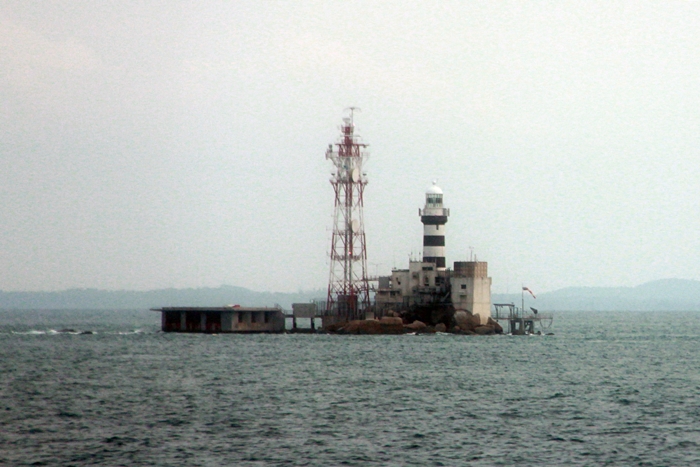 Photo via Wikimedia Images.
Photo via Wikimedia Images.
Past and present Malaysia Prime Ministers have attempted to challenge the ICJ ruling, but Malaysia eventually chose to withdraw its challenge of the ICJ ruling in 2018, under then-Prime Minister Mahathir Mohamad.
In December 2022, current Prime Minister Anwar Ibrahim told his government to look into the matter so "that there can be more meaningful negotiations with Singapore", but said that his government will not dispute the ICJ ruling.
In a parliamentary speech in 2023 mentioning Singapore’s development works at Pedra Branca and other issues, PM Lee said: "It is important that both sides manage these issues well and not allow any single issue to dominate and disrupt our overall bilateral relationship."
Top photos via Lee Hsien Loong/Facebook
If you like what you read, follow us on Facebook, Instagram, Twitter and Telegram to get the latest updates.

